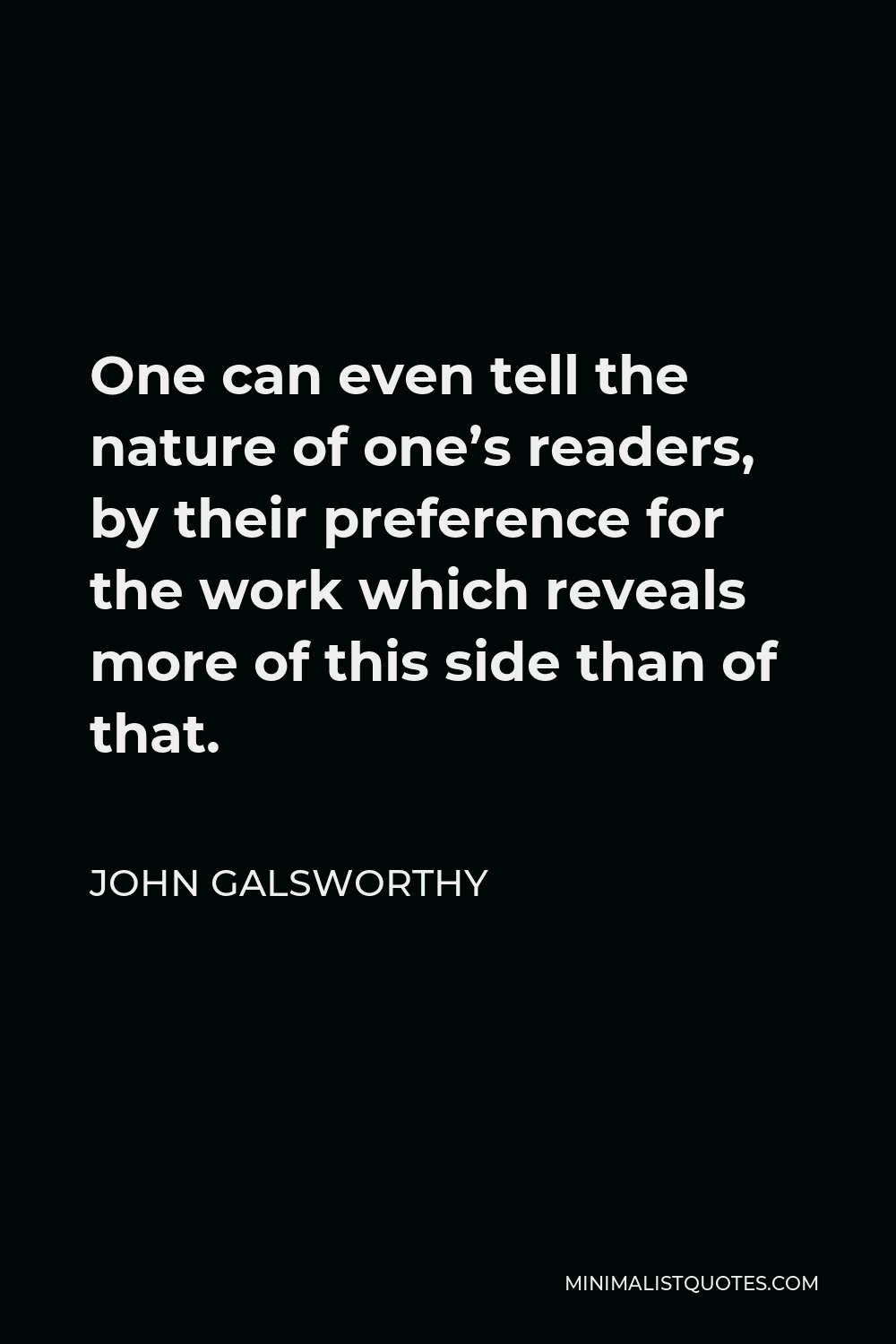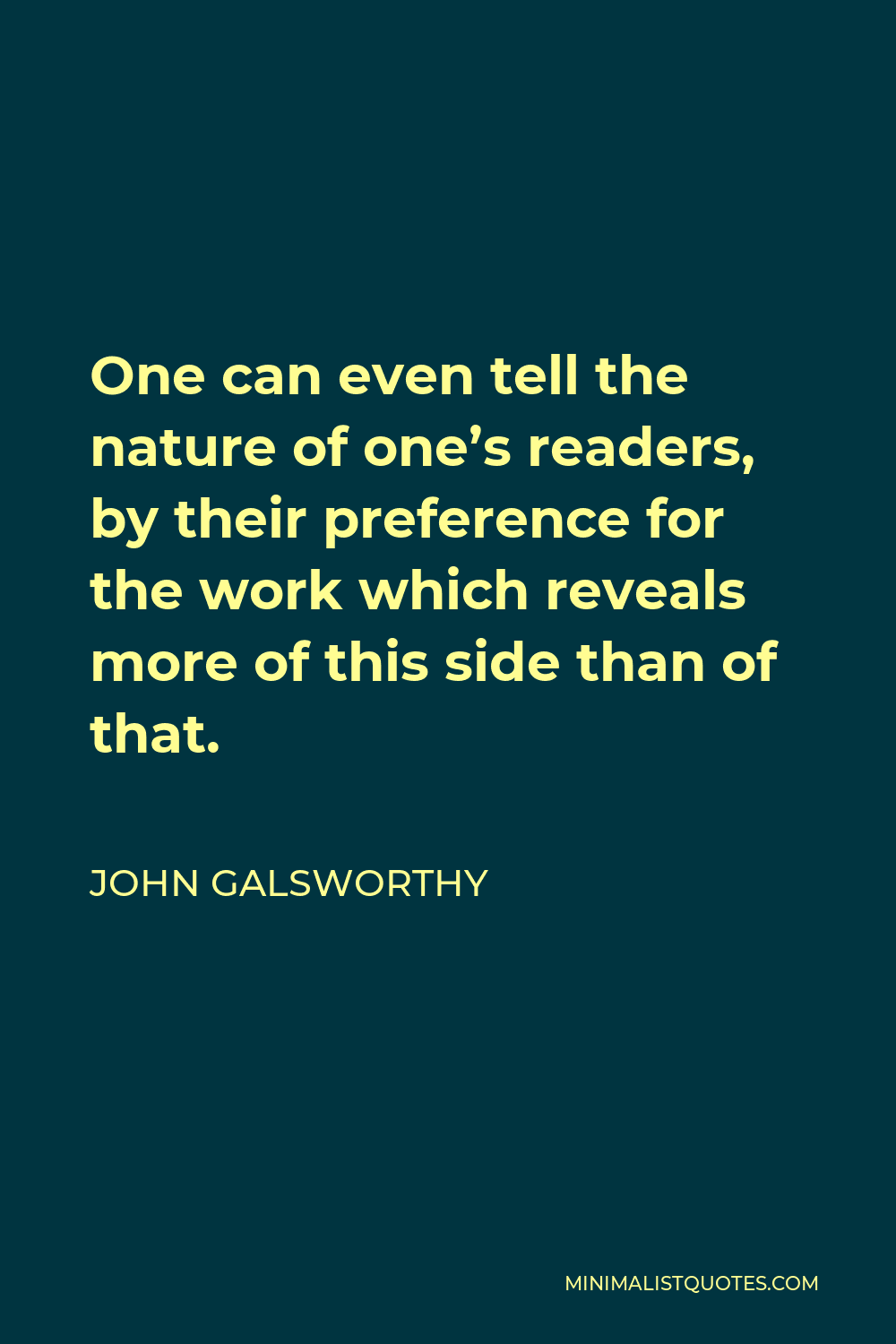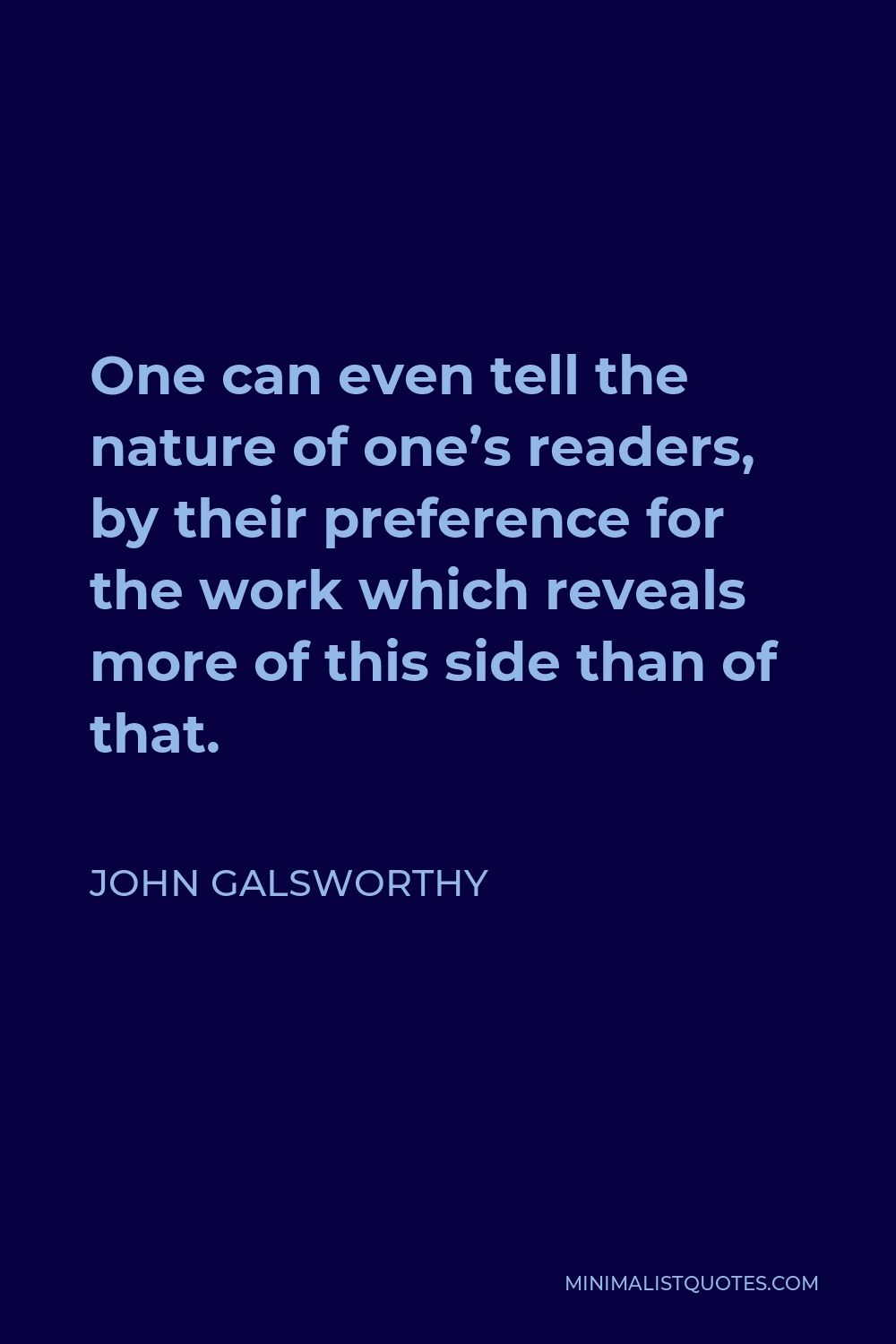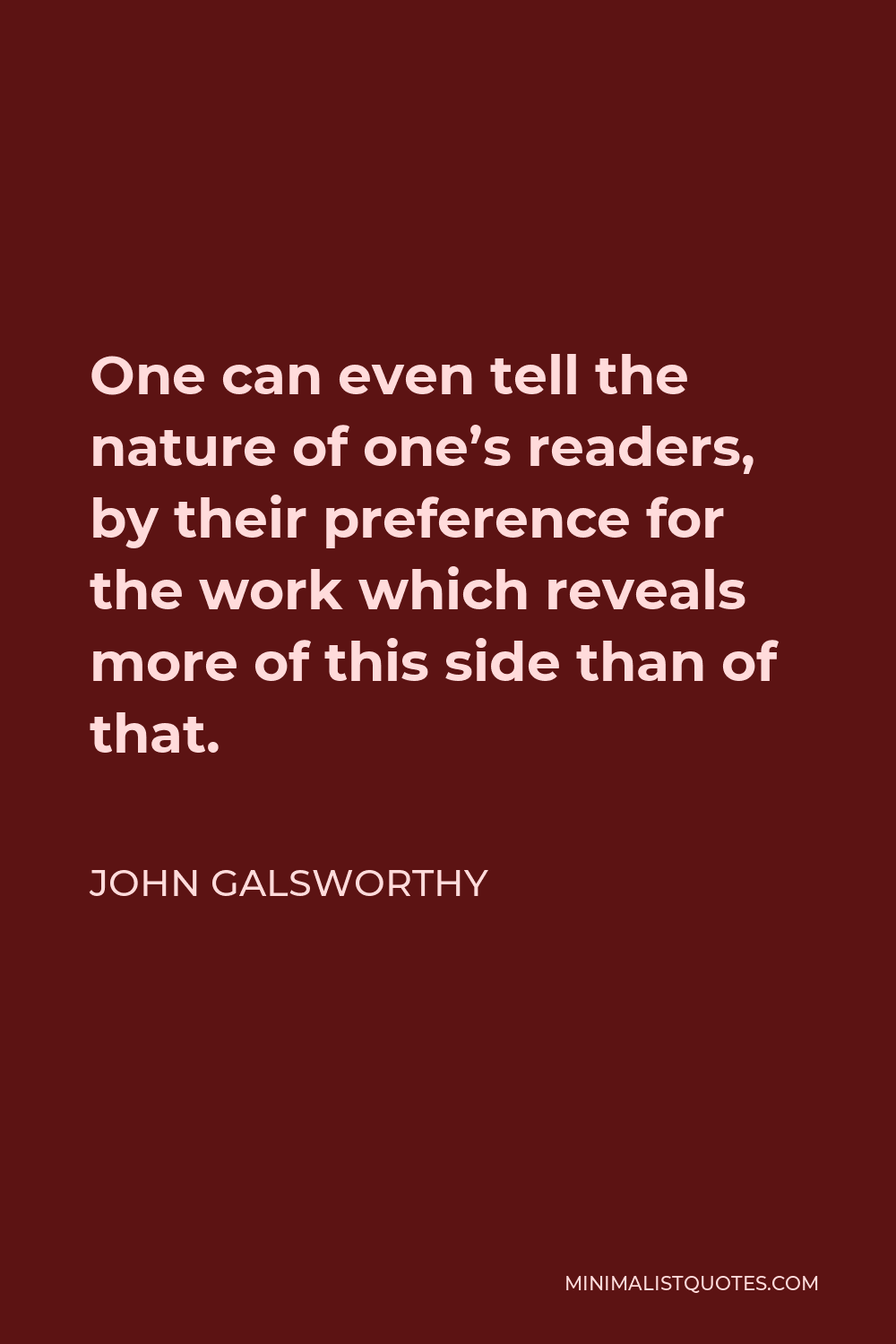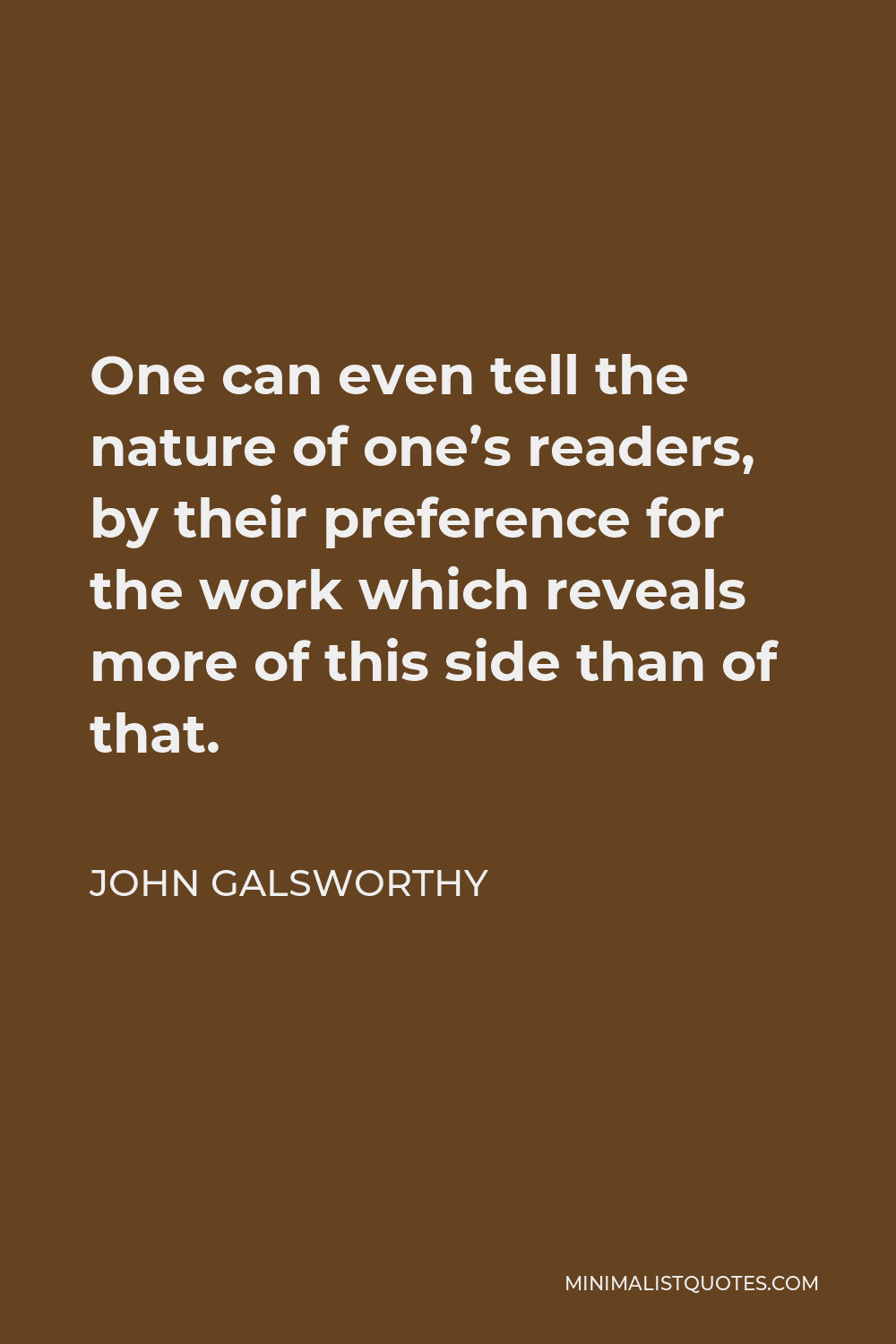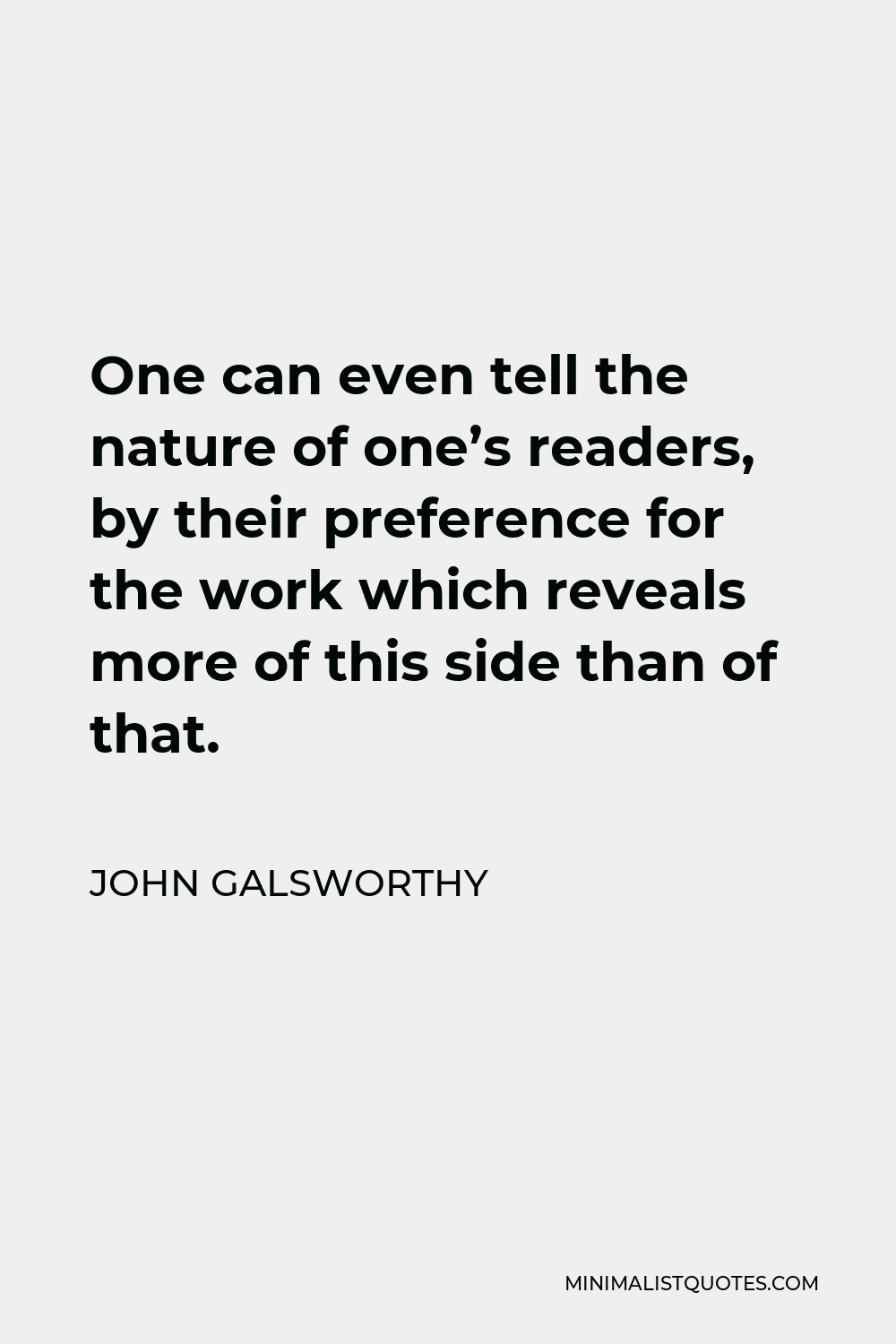Slang is vigorous and apt. Probably most of our vital words were once slang.
JOHN GALSWORTHYOne can even tell the nature of one’s readers, by their preference for the work which reveals more of this side than of that.
More John Galsworthy Quotes
-





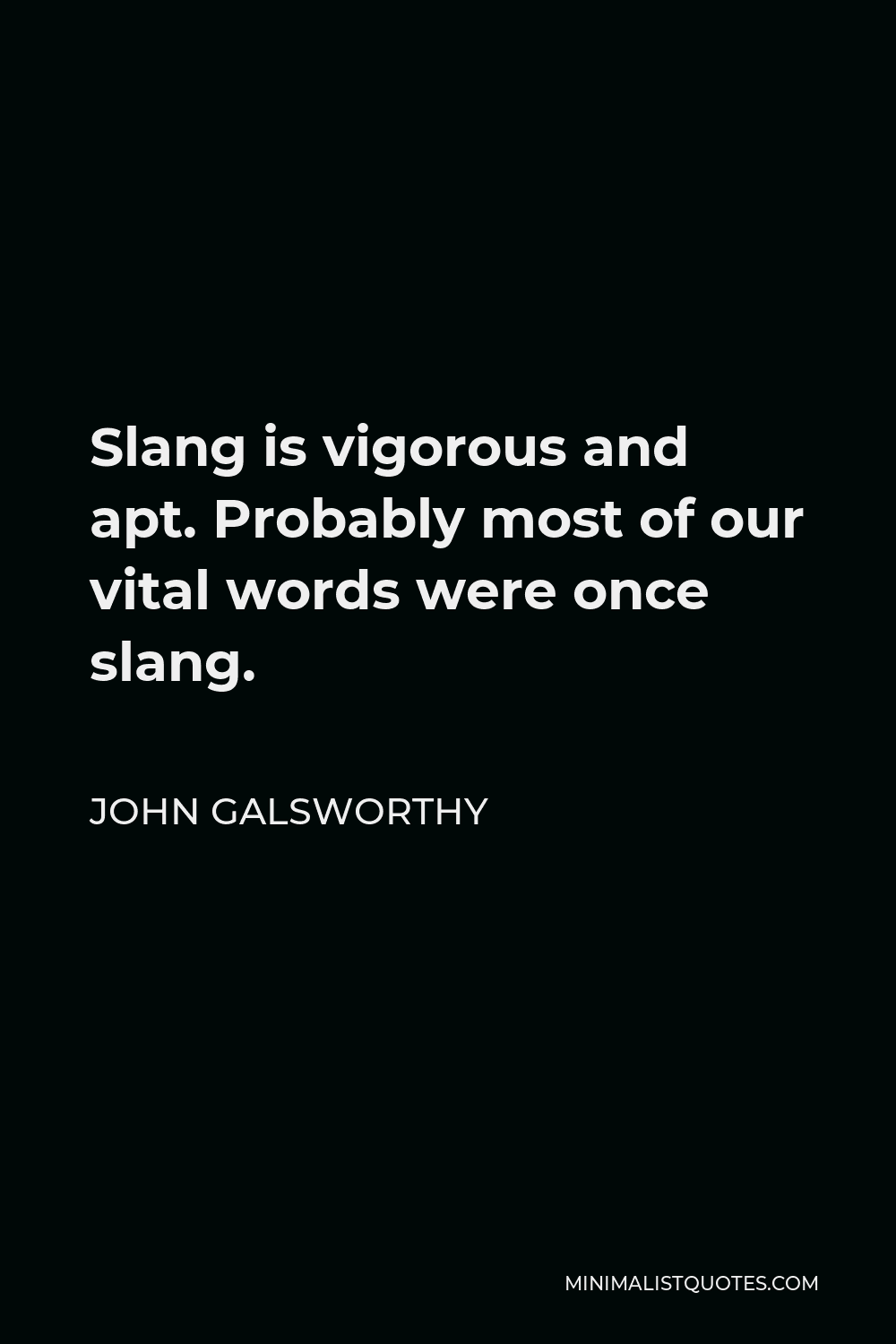
-





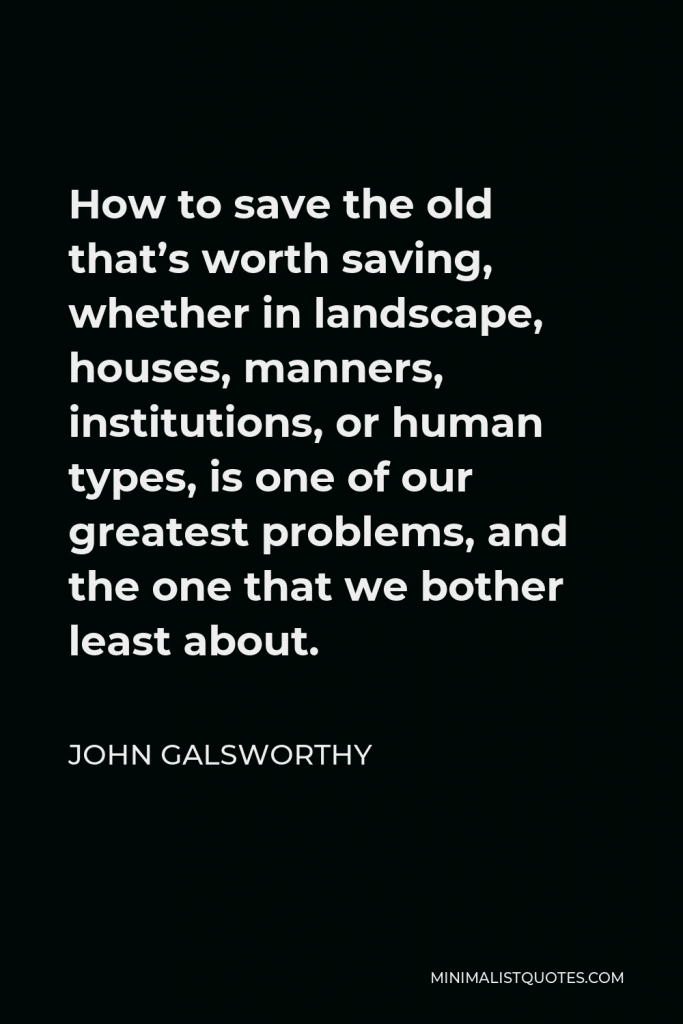

How to save the old that’s worth saving, whether in landscape, houses, manners, institutions, or human types, is one of our greatest problems, and the one that we bother least about.
JOHN GALSWORTHY -







I think the greatest thing in the world is to believe in people.
JOHN GALSWORTHY -





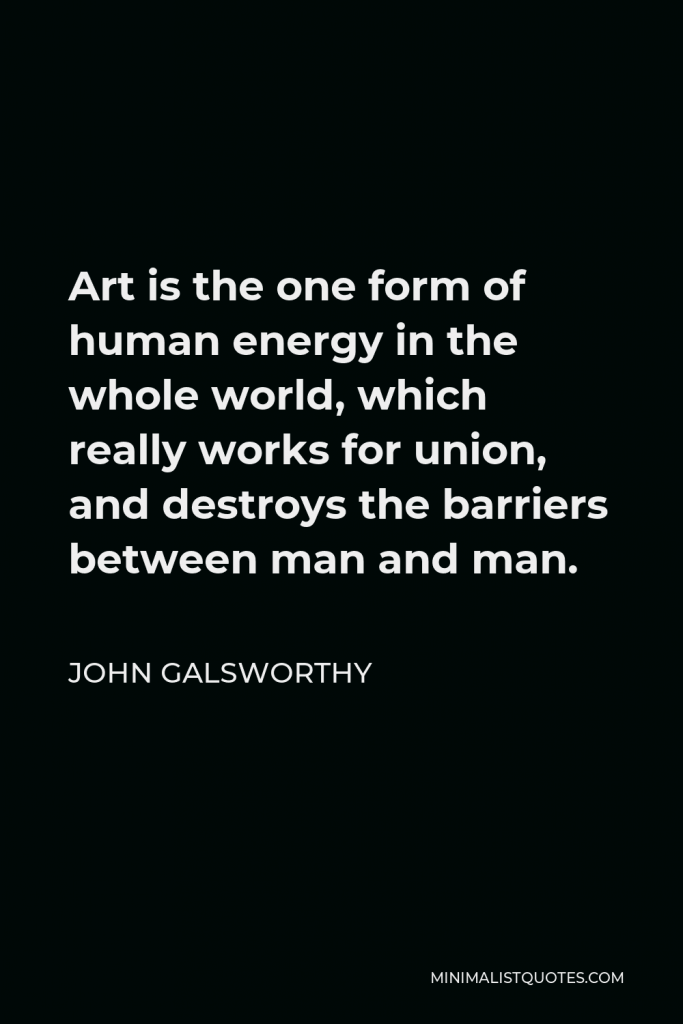

Art is the one form of human energy in the whole world, which really works for union, and destroys the barriers between man and man.
JOHN GALSWORTHY -







Justice is a machine that, when some one has once given it the starting push, rolls on of itself.
JOHN GALSWORTHY -







Wealth is a means to an end, not the end itself. As a synonym for health and happiness, it has had a fair trial and failed dismally.
JOHN GALSWORTHY -







If you do not think about the future, you cannot have one.
JOHN GALSWORTHY -





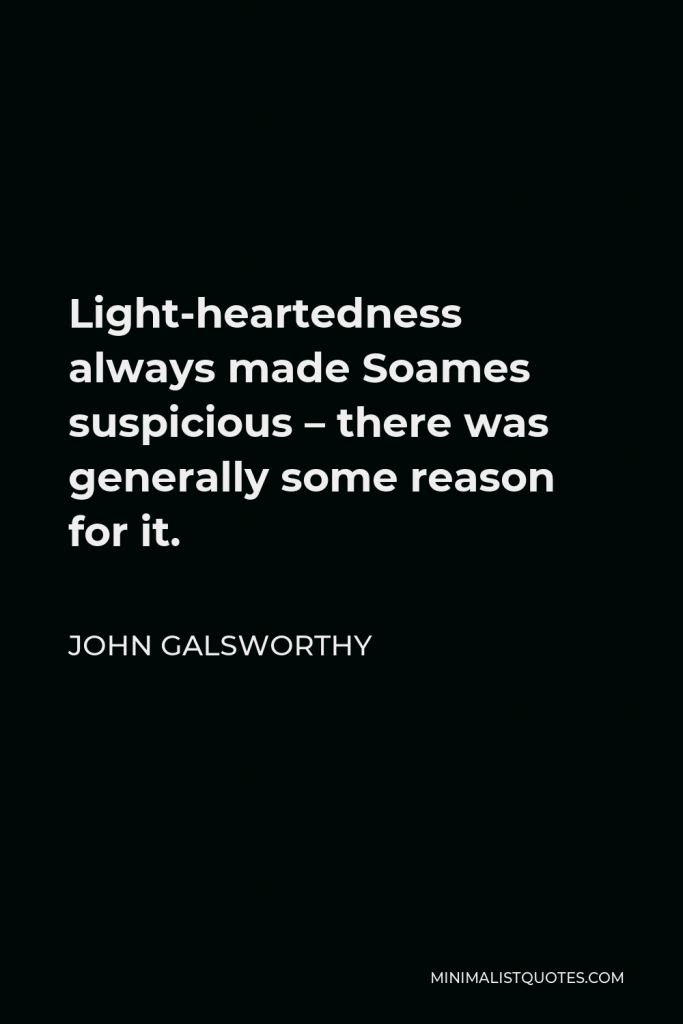

Light-heartedness always made Soames suspicious – there was generally some reason for it.
JOHN GALSWORTHY -





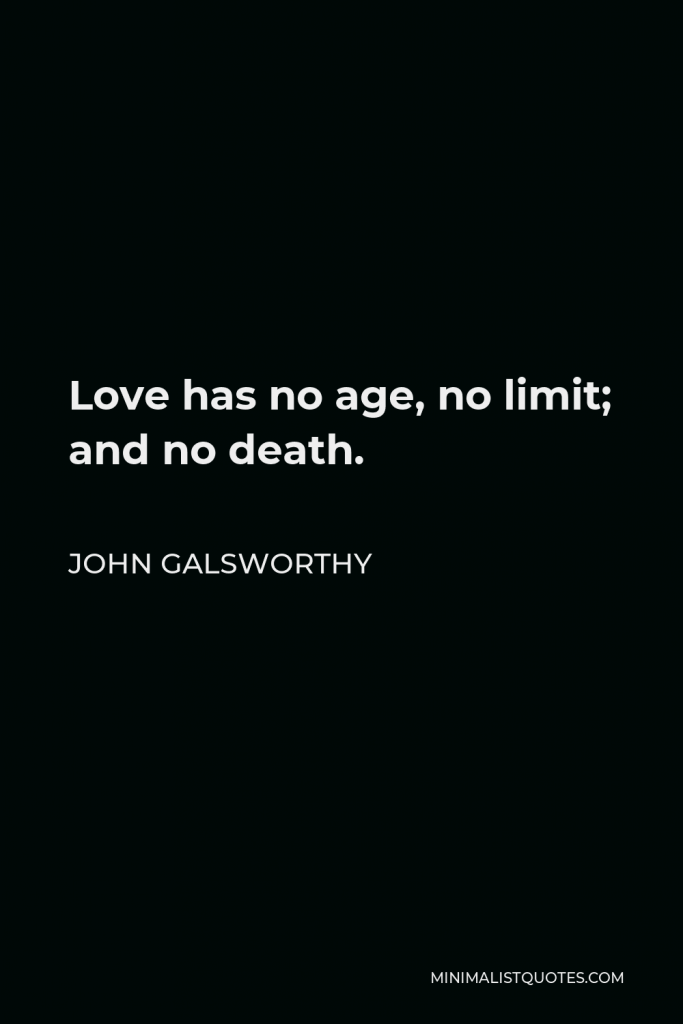

Love has no age, no limit; and no death.
JOHN GALSWORTHY -





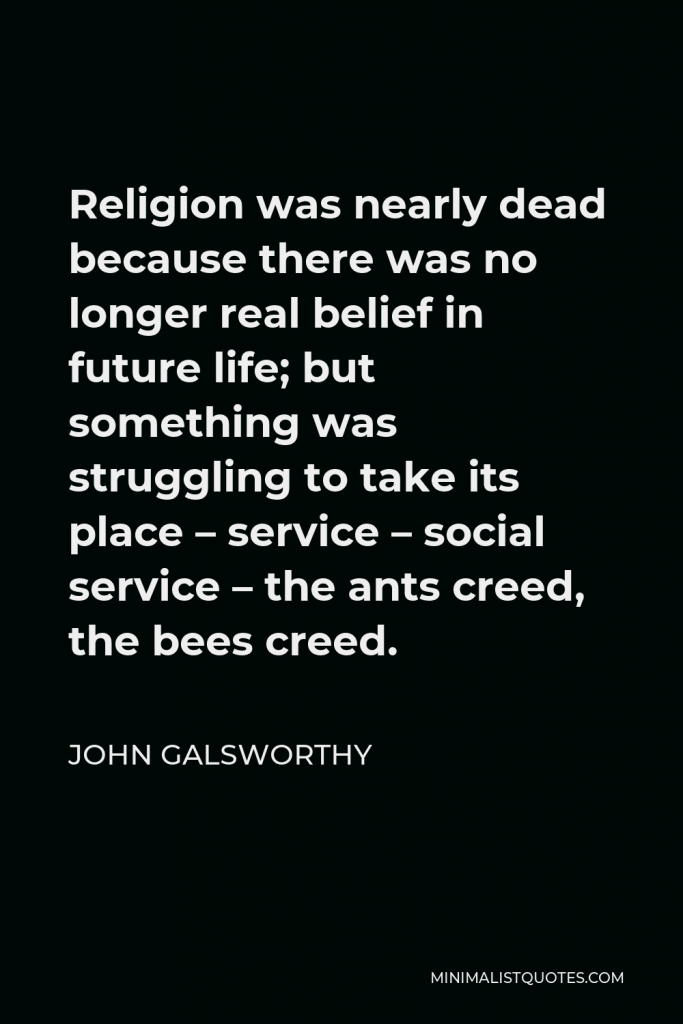

Religion was nearly dead because there was no longer real belief in future life; but something was struggling to take its place – service – social service – the ants creed, the bees creed.
JOHN GALSWORTHY -





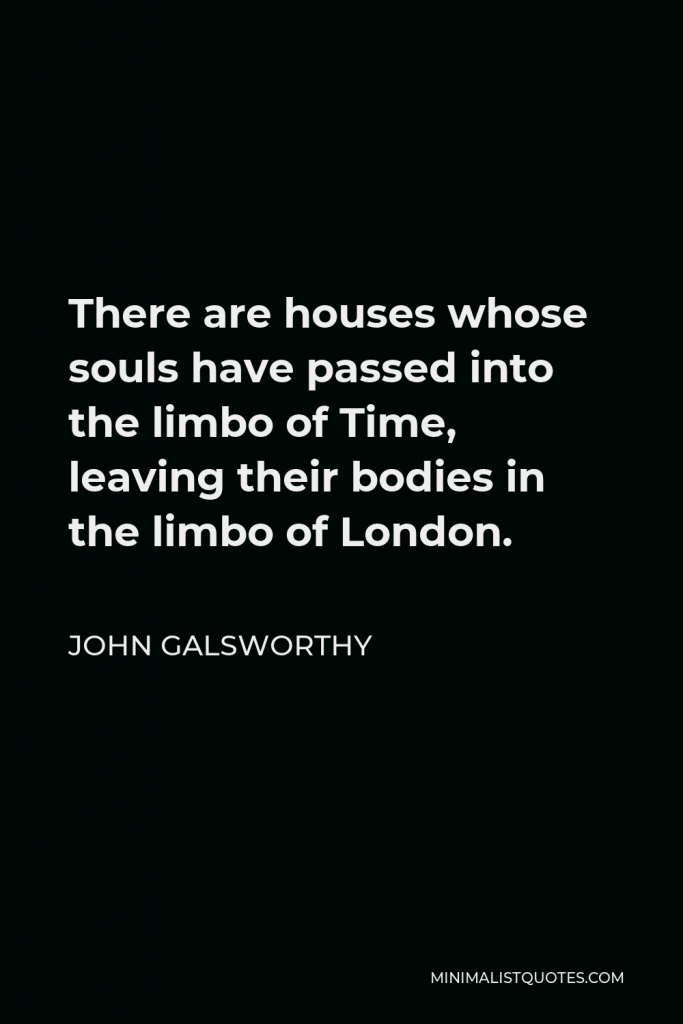

There are houses whose souls have passed into the limbo of Time, leaving their bodies in the limbo of London.
JOHN GALSWORTHY -





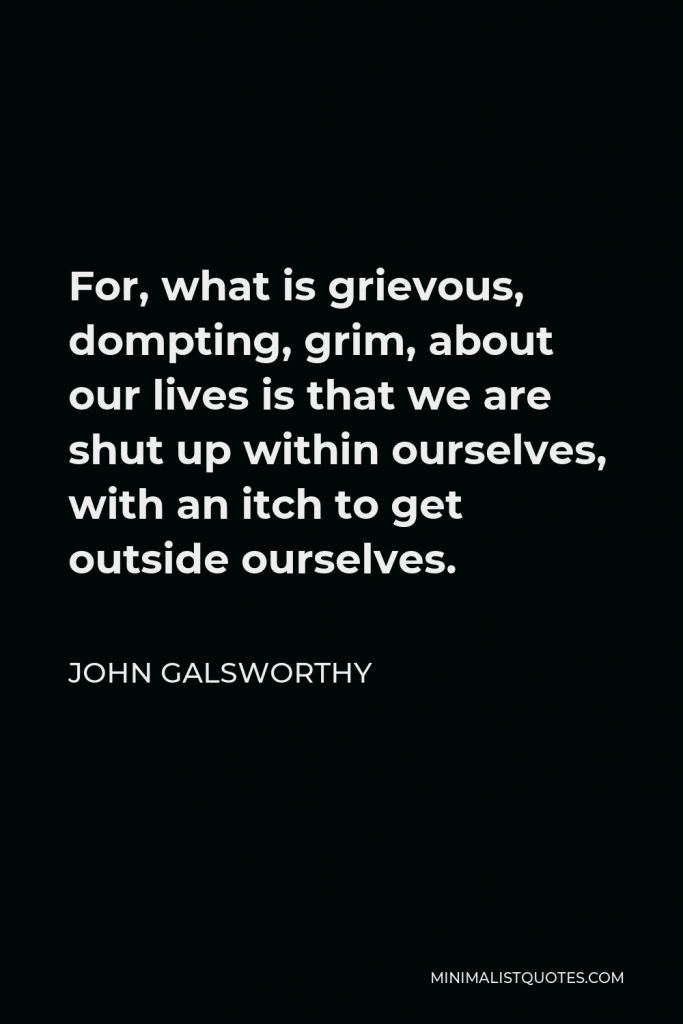

For, what is grievous, dompting, grim, about our lives is that we are shut up within ourselves, with an itch to get outside ourselves.
JOHN GALSWORTHY -





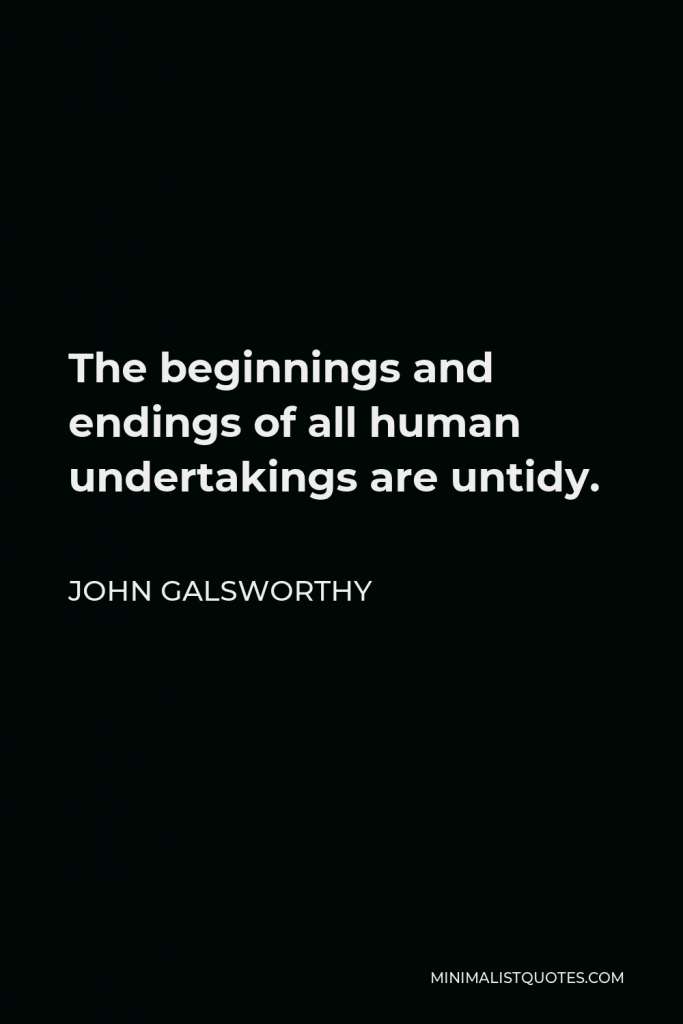

The beginnings and endings of all human undertakings are untidy.
JOHN GALSWORTHY -





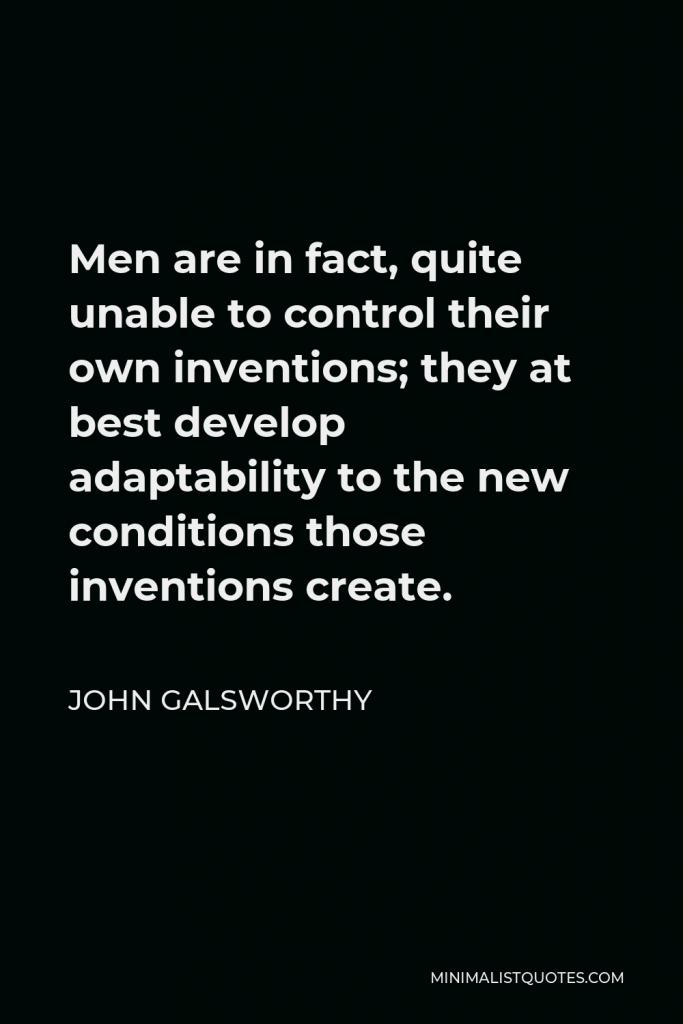

Men are in fact, quite unable to control their own inventions; they at best develop adaptability to the new conditions those inventions create.
JOHN GALSWORTHY -







A man is the sum of his actions, of what he has done, of what he can do, Nothing else.
JOHN GALSWORTHY -





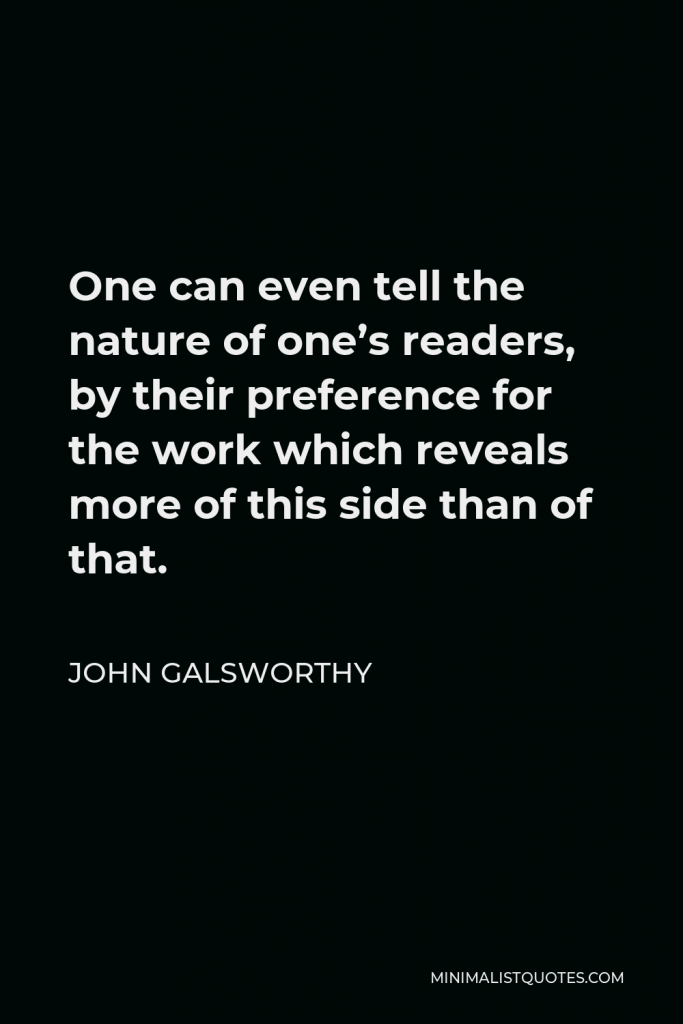

One can even tell the nature of one’s readers, by their preference for the work which reveals more of this side than of that.
JOHN GALSWORTHY
